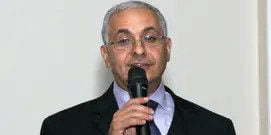
Rep. Jim Boyd
A Senate panel has approved a measure sponsors say is the next step in reforming the way Florida funds its clerks of court.
The Senate Judiciary Committee voted 11-0 on November 30 to approve SB 552 by Sen. Jim Boyd, R-Bradenton. A companion, HB 397 by Rep. Charles “Chuck” Clemmons, R-Jonesville, has yet to be heard.
SB 552 would, among other things, redirect some filing fees from state coffers to the clerks of court without increasing individual fees or other costs paid by attorneys.
According to a staff analysis, the measure would generate an additional $17.4 million per year for clerk operations.
“This bill is meant to build on the framework,” Boyd said. “This will better support their court-related services.”
The measure would redirect a portion of foreclosure fees from the state to the clerks, change the distribution of a county court filing fee, and allow clerks to seek state reimbursement for filings related to such things as domestic violence, mental health and substance abuse, for which there are no filing fees.
Another provision would modify the standard terms of a payment plan for individuals who owe money and establish a $25 minimum monthly payment and limit the down payment to 10% of the amount owed or $100, whichever is less.
The latter provision is designed to reduce driver license suspensions, Nikki Alvarez-Sowles, Pasco County Court Clerk and Comptroller, told the committee.
Sen. Doug Broxson, R-Pensacola, said he is working with Rep. Fentrice Driskell, D-Tampa, on a proposal that would address license reinstatement. Ex-felons can’t afford to reinstate their driver licenses when they get out of prison, and that threatens their ability to find work and successfully reenter society, Broxson said.
“This is kind of an Achilles’ heel throughout the state,” Broxson said. “Rep. Driskell and I are working on a concept where hopefully we will have a payment system that will generate some additional revenue for you.”
Alvarez-Sowles noted that every clerk sponsors an “Operation Green Light” at least once a year that offers motorists some debt forgiveness, but the programs vary, she said.
Clerks are dedicated to finding more solutions, she said.
“What we would like to be able to do as clerks is to negotiate that debt and to settle it,” she said. “We are working on language.”
The reforms will take time, she said.
“We are ready to take the next step forward,” she said. “We know that this will be an incremental, multi-year initiative.”
Another provision of SB 552 would target motorists who challenge a civil traffic infraction before a judge, magistrate, or hearing officer and who are found guilty. It would require that they pay a statutory minimum fine. Current law only sets a maximum.
The measure would also improve a technology link with the Department of Highway Safety and Motor Vehicles and give clerks the ability to reinstate driver licenses for motorists who have paid fines and fees. Clerks would also be allowed to check property and motor vehicle title records before granting an application for civil indigency status.
Boyd sponsored SB 838 in the last legislative session. The measure was designed to begin addressing the $40 million to $50 million annual funding shortfalls that clerks have experienced in their court operations.
“We are thankful that last year the Legislature provided us the framework to begin fixing the challenges that have affected the system that funds our services,” Florida Court Clerks & Comptrollers President Angelina “Angel” Colonneso said in a statement issued after the committee hearing. “Clerks of Court are committed to continuing to build on this foundation with a new set of creative solutions laid out in SB 552 and HB 397, and we look forward to working with our legislative partners to move these bills forward to better safeguard our services for residents.”
Jim Ash, Florida Bar News (2021, December 02) https://www.floridabar.org/the-florida-bar-news/senate-judiciary-moves-measure-to-address-clerk-funding-woes/
![Florida Lawyers Network - [FLN]](https://floridalawyersnetwork.com/wp-content/uploads/2021/02/FLN_logo.jpg)










